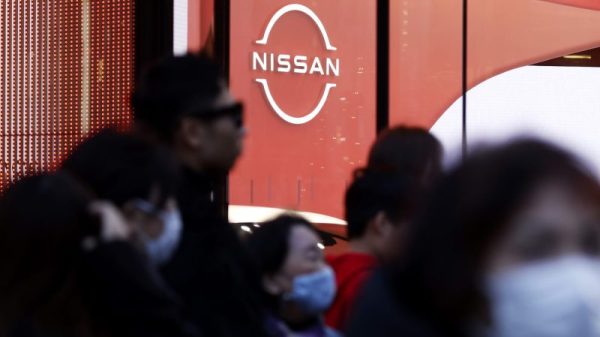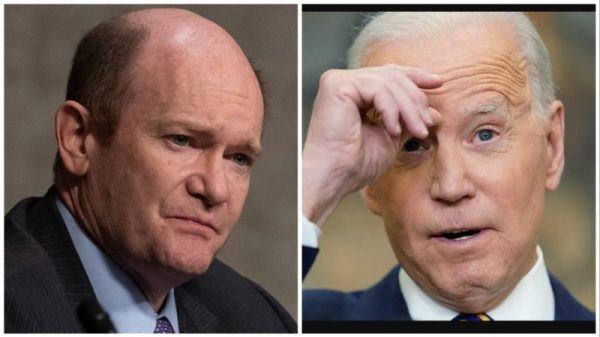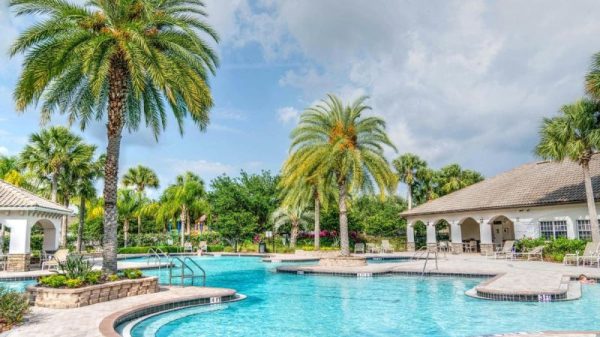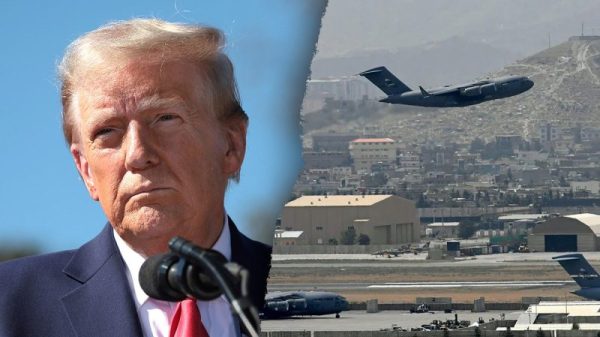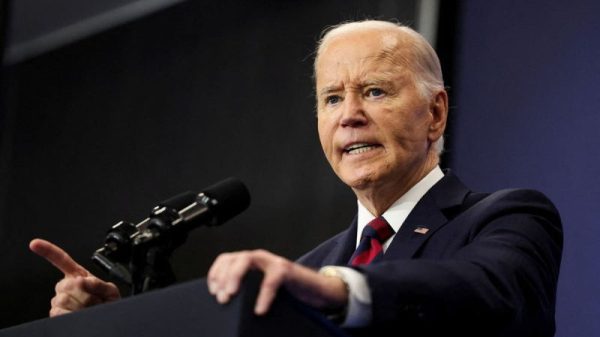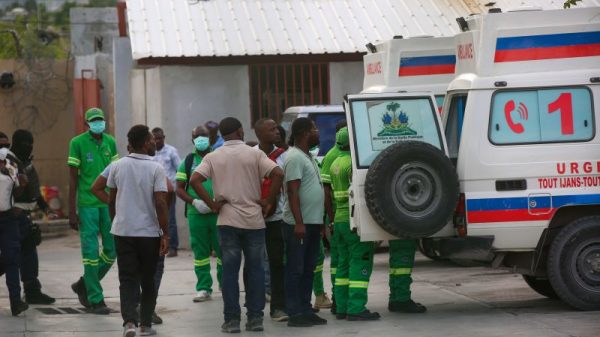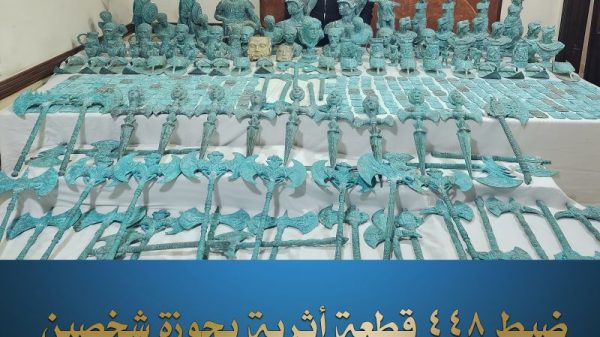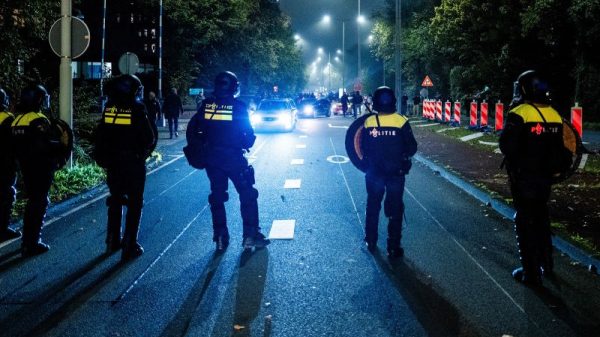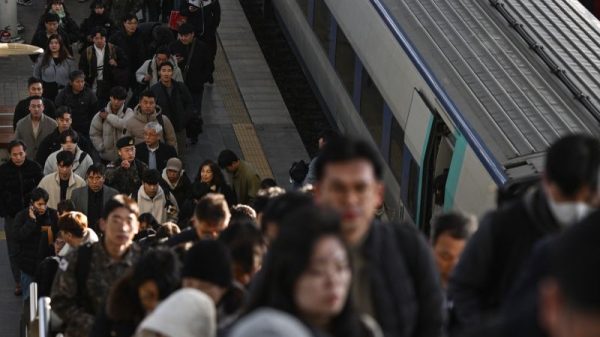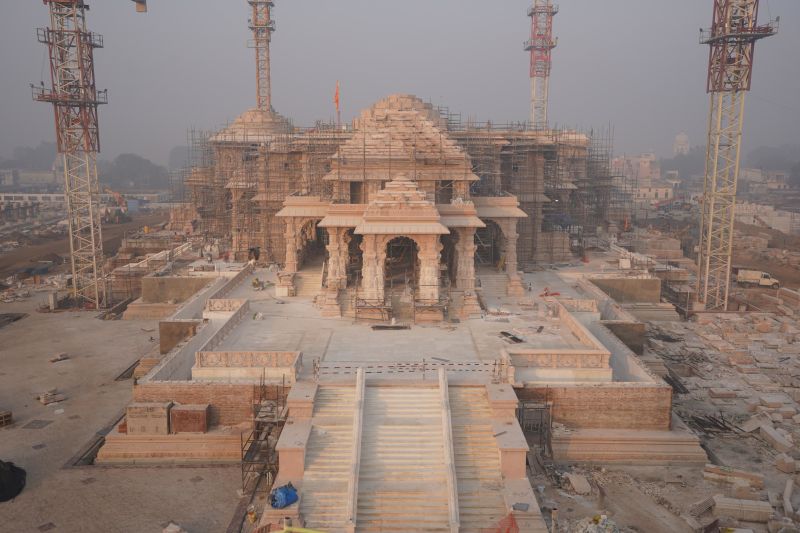Saffron flags are flying in the majority Hindu town of Ayodhya as excited locals prepare to host Indian Prime Minister Narendra Modi for the inauguration of a new multimillion-dollar temple.
But like many of the town’s 500,000 Muslims, 65-year-old Maulana Badshah Khan says he’ll be staying at home.
He fears a repeat of the religious violence that erupted more than 30 years ago, when Hindu nationalists destroyed the Babri Masjid, a 16th century mosque, triggering riots across the country.
On Monday, Modi will officially open the Ram Janmabhoomi Mandir, a lavish temple built on the same site that analysts say is a monument to Hindu nationalist ambition.
Khan says he believes the celebration is a clear sign of how Muslims are becoming marginalized under the leadership of Modi’s Bharatiya Janata Party (BJP).
“The wounds of Babri Mosque’s demolition will always be there. Even if we feel despondent about voicing them,” said Khan.
“The temple holds the symbolic value of showing the Muslims their place in New India.”
Fear and anxiety
More than 7,000 people have been invited to Ayodhya to attend the ceremony in person, including high-profile politicians who are flying in from across the vast country to take part. And tens of thousands of pious Hindus are thronging to the small town to place flowers and gifts inside the temple.
Amid these increasing crowds, there is apprehension among Ayodhya’s Muslims.
Azam Qadri, the 39-year-old head of a local religious body, said that those who lived through the 1992 violence fear the arrival of outsiders.
“Every time people come from outside there is trouble. One cannot afford to lose their precious belongings, savings, or identity papers anymore. It is not easy to restart your life again,” he said.
Haji Mahboob, who lost two relatives during the 1992 violence, said local Muslims are worried the emboldened crowds will chant provocative slogans against them.
“They will call for Muslims to be expelled from Ayodhya or demand a Hindu Rashtra (nation),” he said.
Mahboob said there is now a sense of hopelessness among his community.
Many Muslims believed that in 2019, when the Supreme Court granted Hindus permission to build the temple on the contested site, the controversy might come to an end, he said. But instead, emboldened Hindus began targeting even more mosques across the country, campaigning to tear those down too.
“The Hindus cannot stand us, they cannot see us, what can we do?” he said.
The rise of Hindu nationalism
Modi rose to power in 2014 with a pledge to reform the country’s economy and usher in a new era of development – but he also heavily pushed a Hindutva agenda, an ideology that believes India should become a land for Hindus.
Many states have passed legislation that critics say is rooted in Hindutva and discriminatory toward Muslims, including laws that make it increasingly difficult for interfaith couples to marry and banning the slaughter and transport of cows – an animal considered sacred to Hindus.
And one of Modi’s key promises to his voters was to build the Ram Temple on the desecrated mosque’s site, and he’s hoping its construction will firm his chances for a rare third election win this year.
Nilanjan Mukhopadhyay, author of “The Demolition and the Verdict,” a book about the 1992 mosque demolition, said Modi’s decision to preside over Monday’s festivities is a sign of Hindu hegemony in India.
Modi’s involvement in the ceremony is indicative of how the line between the state and religion is becoming increasingly blurred, he said.
Mukhopadhyay added the sentiment among Muslims is not one of celebration. He has heard that Muslims are advising each other not to travel by train, not to drive cars alone and not to wear clothing that identifies them as Muslim.
“There is going to be immense sadness and there is also going to be tremendous fear (among India’s Muslims),” he said.
“In terms of Prime Minister Modi’s government’s work, initiatives, and developmental agenda, not one scheme, program, or anything, distinguishes between Indian citizens on the basis of religion, caste, region,” he said.
The new mosque
In the years following the demolition of the Babri Masjid, Hindu nationalists rallied to build the Ram Mandir on the site of the destroyed mosque, setting the stage for an emotional and politically charged showdown that worried Indian liberals, who feared more outbursts of sectarian violence.
That 2019 judgement that paved the way for the building of the Ram Mandir also allocated land for the town’s Muslims to build another mosque, some 25 kilometers (about 15 miles) from the Ram Mandir in a village called Dhannipur.
Mahboob, one of the petitioners who fought for the Babri mosque in the Supreme Court, said for most Muslims of Ayodhya, its construction does not hold emotional sway.
“If they built the mosque close to where Babri stood, we could have tried to convince ourselves that injustice was not happening to us. However, this land is so far away, and over that the construction has not even begun. So what do we say?”
He said the delays were due to disagreements about the design of the building but believes the new mosque will be unique as it will be the first in India with five minarets.
Amongst other ambitious plans, Shaikh says he wants additional land for educational institutions, a vegetarian kitchen, and a 21-foot-long Quran which will be painted saffron – a color closely associated with Hinduism but one that has become increasingly politicized and appropriated by the Hindu-right.
Shaikh said the color was chosen because Gharib Nawaz, a famous Sufi saint, also revered saffron.
“It will bring the two communities closer,” he said.
Enduring divisions
Right-wing Hindu nationalist organizations say the temple’s opening is a symbol of a new Hindu nation.
“The Mughals tried to change us, then the English tried to change us, but the inauguration of the Ram Temple shows the world that our Hindu traditions, practices, and beliefs are still intact. New India will see a resurrection of the Hindu civilization,” said Vinod Bansal, spokesperson of the right-wing Vishwa Hindu Parishad group.
Mahant Jairam Das, the local head of the Rashtriya Swayamsevak Sangh, the parent organization of the BJP, said he does not believe the mosque should not be built in Ayodhya, instead claiming calls to build the structure were a “call for war.”
“Go to Saudi Arabia, Pakistan, or a Muslim-dominated country. Why build a mosque like this in India?” he said.
For Hassan Ali, who was just nine when he spent two nights in a local police station trying to escape the 1992 violence, the sectarian fault lines are clearly visible.
“In 1992 there were many stories of local Hindus and Muslims helping each other. However now, there is a lot more poison that has been fed to people,” he said. “So one cannot tell anymore. One cannot tell what people have in their hearts.”










